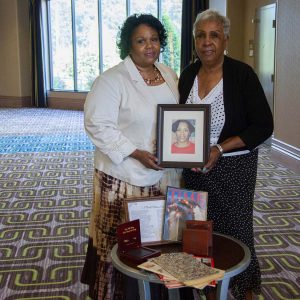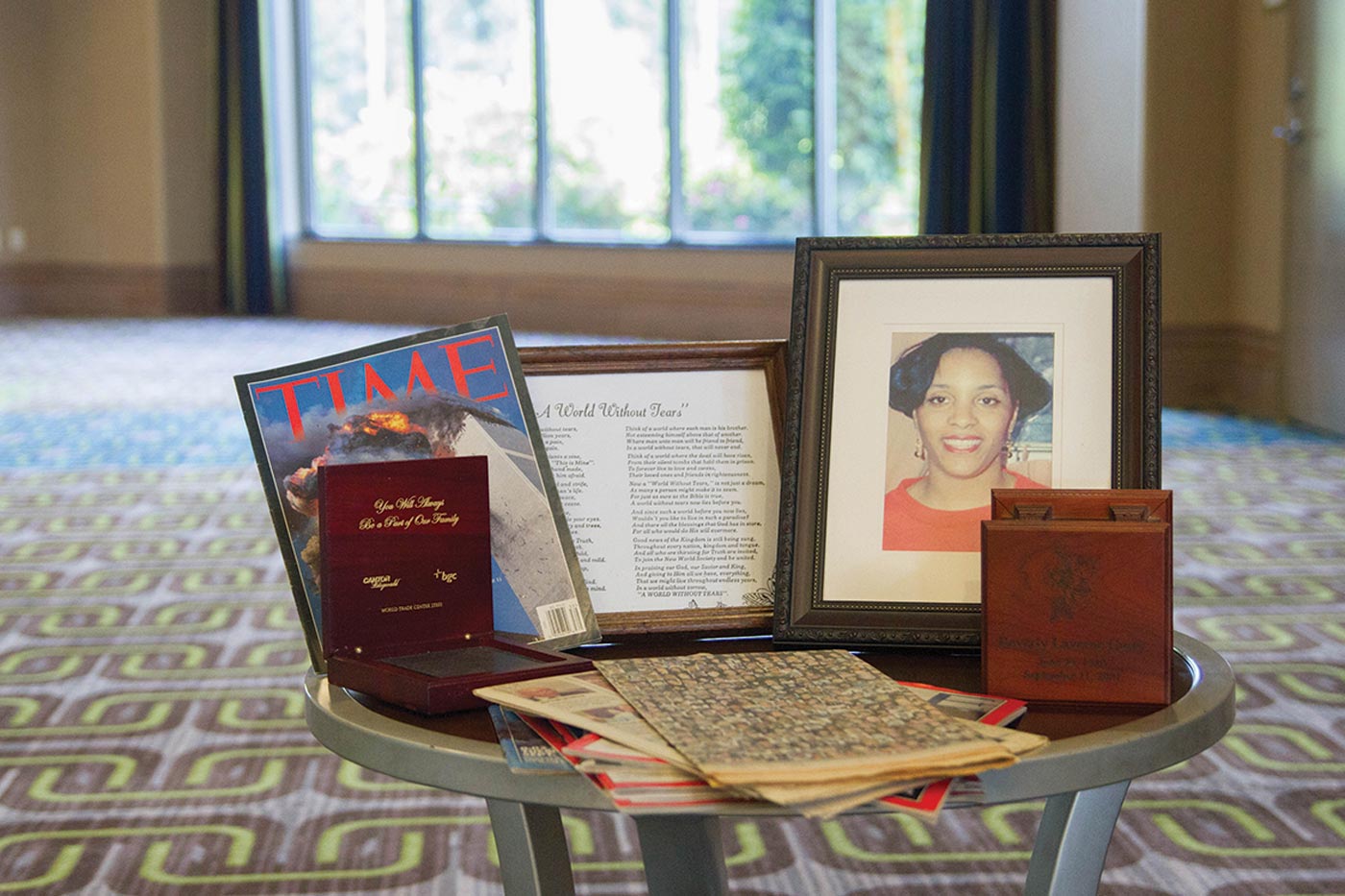I’ll see you again
Faith helps family find forgiveness, cope with loss of loved one
September 13, 2016
“Just think of a world, a world without tears, where man can live for a million years, with never a grief, an ache or a pain, and never a thought of dying again. Think of a world without bloodshed and strife where no man shall dare take another man’s life. Where man until man will unite in peace and malice and hatred forevermore cease.”
Genee Chase’s voice falters and she puts down the poem she has been reading, inhales slowly and dabs carefully at her eyes.
“I don’t know if I can read the rest,” she says.
Chase and her mother, Dorothy Green, have spent the last 15 years living with the loss of their sister and daughter Beverly Curry, who worked as an operations manager at Cantor Fitzgerald, an equity investment company headquartered in New York City, and who died on September 11, 2001.
On that fateful day Green, a Jehovah’s Witness, was out making calls with a friend when the initial news came on the radio. Green immediately thought of her daughter, and ran home. As she sat staring at the television, frantic telephone calls pouring in, she witnessed the collapse of the World Trade Center in front of her.
“I just couldn’t believe it,” Green said. “When I saw it I was in total disbelief and anger. Just all the emotions you go through when you know your child is dead. I saw it when it caved. I just was totally broken.”

Chase was in California, where she was living, when she heard from the friends she was staying with that day. She sunk onto a bed and watched in disbelief as the first tower collapsed.
“It was surreal; it was like this cannot be happening, things like this do not happen in the U.S.,” Chase said. “It just didn’t register. I kept thinking she was going to call me back on her cell phone and say everything is okay, or someone was going to call and say that she was okay. But as I watched that tower crumble, I thought, she’s gone.”
Chase recalls the whirlwind of emotions that came as they tried desperately to contact Curry: terror, pain and the faintest spark of hope.
“We got on our cell phones, and we’re trying to call her, trying to reach her, and we got her voicemail over and over,” Chase said. “We left messages in hopes that she would call. Everything was just really crazy and a blur, and I just could not believe what was happening.”
Curry was 41 years old and married at the time of the attack. She had been the fourth of five sisters, and in high school was actively involved in band and other clubs, as well as excelling in her classes.
When she died, she was attending college classes, and had been just about to graduate. She was awarded a diploma posthumously, and in addition to several plaques and memorials was honored by a street in New York City, called Beverly Curry Way.
“It’s just amazing, the outpour, and we knew her best, so we knew the type of person she was,” Chase said. “She was like a tall gazelle, a beautiful, tall, lanky gazelle. She was a very, very personable person. Very confident. And she grew up to be such a beautiful individual, and her whole goal was to move and live in New York. And she made it. She made it to New York.”
Initially, all that was found of her was her clavicle and other minuscule parts; they later decided to refuse the remains that surfaced in the following months. Green now keeps her ashes in an urn.
After her death, her family traveled to the city to finalize funeral and memorial arrangements.
“She lived in Staten Island, where she could overlook the skylight of the Twin Towers,” Chase said. “And so while we were there, what we saw was the smoke- the smoldering smoke of where the Twin Towers stood. That was really those days after that. Just like a slow motion type of feeling, like ‘Is this really happening?’ I can’t imagine anyone having so much hatred in their hearts to want to do something this horrible.”
They lived with that anger for years, acknowledged Chase. But they found peace through their faith and in the forgiveness of those men who flew the planes into the towers.
“I had to mentally forgive those people who were so messed up in this world that they would do that, they would kill that many people,” Chase said. “They had a sick hatred. So I had to forgive them. And once I had prayed and let forgiveness come I have been able to cope with it.”
Green agrees, composedly stating her belief that she will see her daughter again.
“Every now and then I get emotional but we are not going allow it to consume us,” Green said. “We go on with our lives. We do what we need to do. It’s still painful. But that’s the hope that we have, that we’ll see her again in the resurrection. That’s all we can hope for.”

